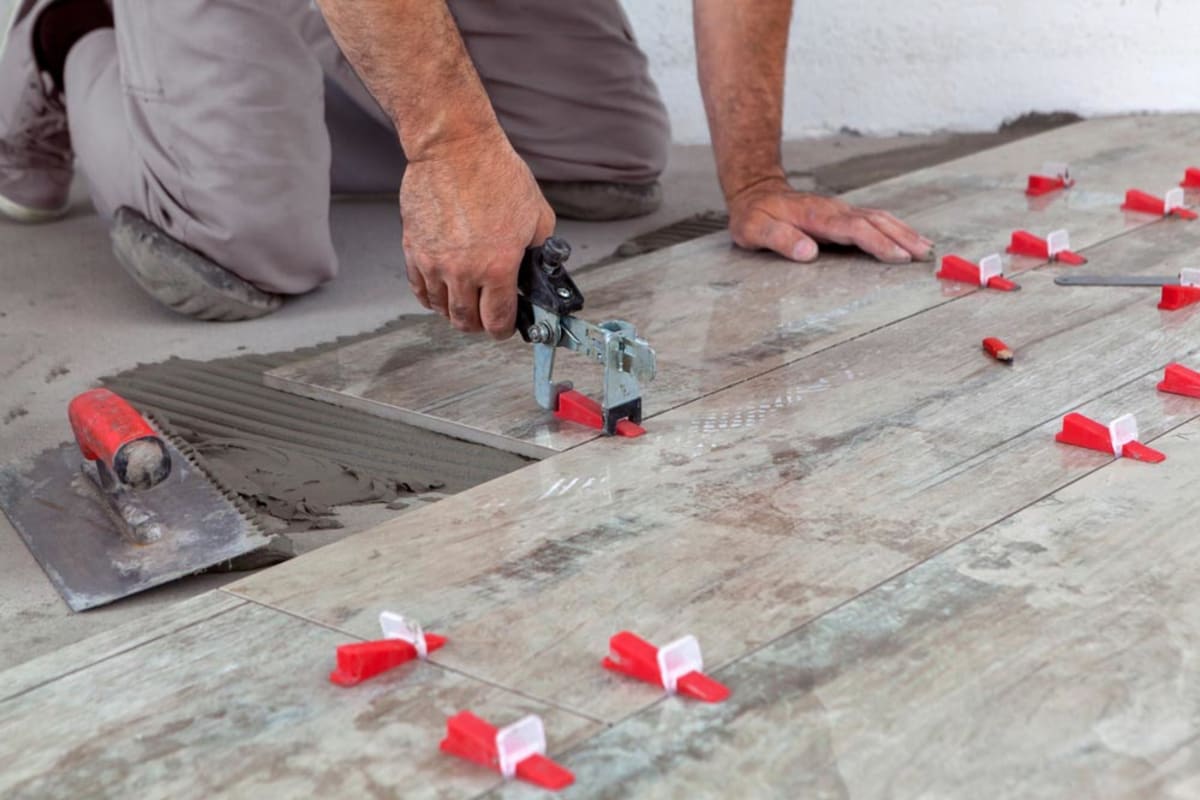
Find tile installers in Cleveland, OH
Find tile installers in Cleveland, OH
Confirm your location to see the best tile installers near you.
Zip code
Find tile installers in Cleveland, OH
Confirm your location to see the best tile installers near you.
Zip code
Top 10 tile installers in Cleveland, OH
Homeowners agree: these Cleveland tile installers are highly rated for knowledge, experience, communication, and more.
32+ years in business
Serves Cleveland, OH
31 years experience installing tile in custom homes. Showers and shower pans, tub surrounds, backsplashes, floors. Highest quality work, competitive pricing. We make your dreams a reality.
AMADEO LLC
7+ years in business
Serves Cleveland, OH
Hello, my name is Ivan Amadeo, I am the owner of Amadeollc. I have been in flooring installations for about 12 years and I understand the situations that a person could be going through when removing or installing a new floor for their home or rental home. I know how important it is to have responsibility, quality of service, and speed to finish the job as soon as possible. I would love to work with you to resolve the problem with the flooring in your home. You can also see some of my company's work on Youtube, Facebook, or on my Web Site.
I want to help you with your new project so that you feel satisfied with the work that we want to offer ...
Regal Home Improvement
5.0(1)
1 hire on HomeGuide
19+ years in business
Serves Cleveland, OH
Mollie W. says, "New tile shower and plumbing, vanity and faucet, and floor tile. Very well done. Older home so there were some challenging situations, but they handled it great!" Read more
Casablanca Flooring And Carpet Llc
5.0(1)
3 hires on HomeGuide
18+ years in business
Serves Cleveland, OH
Tina S. says, "Aziz and his guys were excellent, professional and on time. Aziz went above and beyond. " Read more
Franks Handyman
3+ years in business
Serves Cleveland, OH
Do almost everything been doing remodeling for 25 years painting, flooring, tile,kitchens, bathrooms carpentry work
Renaissance Man Co LLC
5+ years in business
Serves Cleveland, OH
At Renaissance Man Co LLC, we bring over 10 years of experience, professionalism, and craftsmanship to every aspect of home improvement. Whether it's drywall installation, tiling, flooring, bathroom and kitchen remodeling, or bathtub restoration, we offer a wide range of services designed to enhance your space. We specialize in transforming countertops, shower surrounds, vanities, and more with custom finishes, including natural stone looks. Throughout every project, we prioritize cleanliness and back our work with comprehensive warranties, ensuring top-quality results and complete peace of mind.
Roman
25+ years in business
Serves Cleveland, OH
We can did everything, flooring decorations, painting, fixing all we did all thinking. All tools us
Jr. & Jr. Construction
11+ years in business
Serves Cleveland, OH
At Jr. & Jr. Construction, we pride ourselves on delivering top-notch craftsmanship and personalized service to Cleveland and beyond. Our expert team specializes in a wide array of services including drywall installation, exterior painting, and comprehensive home remodeling. Whether it's a kitchen remodel, fence repair, or adding a new deck, we handle each project with precision and care. With a commitment to quality and customer satisfaction, no job is too big or small for us. Let Jr. & Jr. Construction transform your space with professionalism and expertise.
IT REMODELING
Serves Cleveland, OH
Everything i can provide as a service to make tour life easier.
•Windows
•Insulation
•plexiglass
•Flooring
•hot water tanks
•Furnaces
•Painting
•Electric/All types
•Some plumming
•Drywall
•running lines
•some roofing
•Gutters
•remodeling of Home
•Basement remodel/Finish
Eric O'Connell
2+ years in business
Serves Cleveland, OH
I truly love everything about this industry and love helping people make their homes a brighter place to live in. I have a thorough background in all phases of residential construction and my expertise overflows into landscaping, demolition, moving, clean-up & organizing, etc. I treat your project like it's my mother's project.
Your Tile Installation and Replacement questions, answered
Answers to commonly asked questions from the experts on HomeGuide.
Reviews for Cleveland tile installers
Recent success stories from people in the Cleveland area.
How HomeGuide works
Search
Search, get cost estimates, contact pros, and book—all for free.
Compare
View profiles, read reviews, check qualifications, and see prices before hiring.
Hire
Ask questions, confirm their availability, and hire the right pro when you're ready.